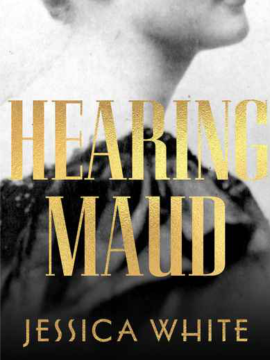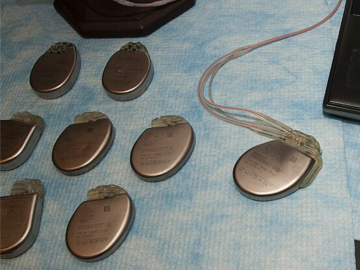Abnormal I Contact
Amanda Tink
‘Not only do these children not hear walls, but when they have the chance to be in a pool, they waste it by just sitting there and talking to their friends!’ I want to tell my older brother Greg, who also hears walls and loves water as much as I do, but he isn’t here. The one or two days a week that I come here, he doesn’t come with me. He goes to another place, and when I am not here I go there with him. I don’t know if the children there appreciate water like we do – the other place doesn’t have pools, and the group of children there is much smaller – but all of them can hear walls.
The adults in my life refer to the other place as ‘preschool’, and to here as ‘kindergarten.’ Preschool has ‘blind’ children, and kindergarten has ‘normal’ children. Normal children don’t go to preschool, but going to kindergarten is supposed to be the best learning opportunity available to a blind child in early 1980s Brisbane. So far this opportunity has enabled me to learn that these children cannot hear walls. And this latest piece of information, that the children who cannot hear walls think a pool is a place for conversation rather than movement, as if the water is a nondescript background rather than a sensuous delight, makes no sense to me.
To be fair to these weirdos, the things I can and cannot do don’t make sense to them either. ‘How can you move so easily from wading pool to wading pool?’ they ask. I don’t know how to answer them. I can hear what is around me, but I cannot explain how it works. Greg and I just understand these things. There is no need for them to have words.
Even though Greg is sixteen months older than me, when people see us together they think we are twins, and this fills me with pride. But beyond looking similar and being the only two blind people in our family, we share a resemblance which is intangible. We spend hours playing beside each other. When we want to irritate each other we inch over the invisible line that we both use to divide spaces like the backseat of a car in to mine and yours. We laugh a lot. We like swimming, and swings, and sausage rolls, and sharing silence.
Greg has been called a ‘nonverbal autistic’. I don’t understand about autistic well enough to make a judgement about it, but I think nonverbal is incorrect because he makes lots of verbal sounds, just not words. I am supposed to introduce him by saying that he ‘can’t communicate,’ but I also think this is incorrect. So instead I say ‘he can’t talk, but he can hear, so he can understand what you say to him.’ I hope that, as well as being more accurate, this explanation will encourage them to talk to him, but their topic changes remain unashamedly swift. So, when I am seven, and I have been transferred from our ‘special school’ to a ‘mainstream school’ with a ‘special education’ unit attached, I write a book about him. It outlines his life thus far, his school, his hobbies, his talents. I think that if I write about the richness of his life as I understand it, then they will read it and understand too.
I also begin to answer the nonstop questions about our hearing. In response to ‘How did you find your way here?’, and ‘How did you know that was there?’ I say ‘I followed the sound.’ ‘But walls don’t make sounds unless you clap or something.’ ‘Yes they do. Everything has its own sound!’ I explain. But this is still not enough. As I grow older, their questions change to ‘How did you do that when you can’t see?’, and then, finally to what turned out to be their real point, ‘You’re not really blind are you?’
At the mainstream school I am being asked these questions so often, by both children and adults, that, for some time, I think perhaps I really can see. I think that maybe I have been classified as blind because I don’t have enough sight to read print with my eyes rather than my fingers. Maybe, like most of the other students from the special education unit, I am ‘partially sighted.’ It isn’t until I go to my first national braille music camp with a hundred other blind students from around Australia four years later that I find some answers.
My echolocation – that’s what hearing walls is called, echolocation – is well-developed, yes, but not at all suspicious or unusual at this camp. Some of us hum or click to create an echo, while many others can hear the echo without making a sound. Scientists currently believe that echolocation without first creating a sound is impossible, and so they pretend we do not exist. Yet, a few decades ago they called this ability ‘facial vision’, and attributed it to changes in air pressure. And while they have abandoned this theory, we wonder if they might have had a point. Taste and smell are interdependent, couldn’t hearing and touch be interdependent too?
Whatever the mechanism, its existence and effectiveness is clear. There are significantly fewer collisions and falls than at the camps that I have attended with mostly sighted children. My skills are no longer a measure of what I can or cannot see, and whether I am lying about it, they are just my skills. And that, for me at least, is the end of the matter. I am totally blind.
*
‘I can’t do this!’ the technician said, but they weren’t the one having the panic attack. That was me. And if you’ve had someone hold your eyelids open for twenty minutes while electrodes continually scratch your eyes because the five lots of anaesthetic eyedrops put in them throughout the last hour still aren’t working, then you will understand why. By contrast, all that the technician has to do is watch the monitor displaying the patterns of my eye’s response to light. They ultimately conclude that I have no light perception, so the patterns cannot have been complicated. But of course that is not the problem. The problem is me and my panic attack. They’ve tried ignoring me, being nice to me, and being angry with me, but none of that has made any difference, and now they are out of ideas.
They need not have worried – I was determined to get through this no matter what, because our new eye doctor said that proving that Greg and I did not have light perception would help, though they weren’t specific as to how, and only one of us needed to be tested. I knew that I could more easily manage the sensory overload of whatever the test would involve than Greg could, and knowing this I immediately made up my mind. If it would help, I would do it.
I did it, and it didn’t help. We were both given the same new diagnosis, but nothing changed.
If we could assume Greg had the same eye condition as me, could we also assume I was autistic like him? ‘No, we couldn’t,’ doctors of the nineties said, ‘girls aren’t autistic.’ ‘But what about Donna Williams? The autistic Australian girl whose book was just on the New York Times Best Seller list?’ ‘She’s faking it!’ Besides, Greg still attends the same school that I left nine years ago. While I am attending a mainstream high school. Therefore we are nothing alike, people said.
*
‘I hate my brother. I wish my parents hadn’t had him!’ This is said with no hesitation or embarrassment. And as messages of sympathy and agreement follow I exit the chat room.
I’m not shocked by this attitude. I’ve had strangers tell me that if they were me they’d kill themselves. I’ve had people who know me very well tell me that spending time with Greg is pointless, and that we are both a waste of resources. So I am aware that hatred of disabled people is common. Therefore, I am ashamed at my naïveté in expecting different. During the last few months I have requested to join a range of online groups for the siblings of people with ‘severe disabilities.’ Until now they had all refused membership to me because I am blind. I should have been suspicious of the single exception.
I truly thought the purpose of these meetings was to support each other to support our siblings. And while I understood that they might not relate to their siblings as I did mine, I thought that their sibling would at least be important to them. I had imagined a group of people similar to someone I had met recently in a tutorial for a first year arts degree subject.
One student had asserted that all disabled children should be aborted. And I was about to question this idea as I usually would, another student whom I didn’t yet know asked ‘Do you mean if the mother was raped, or her life is in danger from the pregnancy?’ ‘No, just if the foetus has a disability.’ ‘But that’s like the Nazis!’ the other said as though he had been physically attacked. His point is often glossed over, even in those histories of the Nazi regime where the genocide of disabled people is mentioned. There were no genetic tests then. Yet many abortions were performed based solely on the assumption that the mother or father had a genetic impairment. Now, fifty years after the Nazi regime ended, women are increasingly coerced into genetic testing, despite the risk of it harming the foetus, and of inaccurate results. There is a case to be made that the level of speculation involved is similar. However, instead of making that case, perhaps because he was too distressed or overwhelmed, he walked out.
I thought the siblings in this chat room would have a similar level of commitment to disabled people, but now with a dreadful clarity I understand the deal we have made: their allowing me to join the group did not mean that they accepted my blindness. It meant that they will ignore my blindness and grant me honorary nondisabled status, if I agree to resent my sibling as much as they resent theirs.
In other words, the chat room group want me to pretend that my brother and I are nothing alike. And I will not! Because the truth is we are alike, quite possibly in more ways than medical professionals have ever acknowledged. Now that I have access to the internet I have been researching blindness and autism, and it seems that one third of blind people are also autistic. Some of the reasons for this conclusion are of the kind that induce one to wonder just how low the bar is to become a medical researcher. In particular, eye contact. It won’t surprise most people to learn that a lot of totally blind babies have ‘abnormal eye contact,’ but some researchers claim that this alone proves that they are autistic. There are, however, other interesting findings: blind people and autistic people are more likely to have better than average memories, to have difficulty making friends as children, to repeat, sometimes over and over, phrases that are spoken to us, and to stim (we spin, rock, and flap our hands).
The chat room group also want me to pretend to be like them. They think that being thought of as nondisabled, like them, is all I’ve ever wanted. As if hating your disabled sibling like they do is somehow admirable.
And I am also ashamed because I should have stayed and said all of this to them.
*
‘That’s nice of you,’ they say in a tone of voice suggesting that I’ve just announced that I am donating a kidney to Greg. Yet I only said that I am going to visit him. I am in my late twenties, and I wish I could say I am used to this reaction. I’m not sure I’ll ever get used to the dehumanisation behind this reaction. I’m not even sure that would be a good thing. I am, however, used to hearing this reaction at least once during the journey to Greg’s house, and am used to responding. Sometimes I ask why, and sometimes I say, ‘He’s my brother!’ They rarely answer either one, and leave me to enjoy the day.
Greg and I have both left home. I have moved closer to the city because that’s where the jobs available to blind people are. Greg has moved further out, because he needed a housing commission house. He therefore had to take what was available. Including sharing the house with another person who has similar support needs to him, and with a rotating cast of half a dozen staff who support them both. He has no choice in who any of these people are. I have tremendous admiration for his patience. The thought of having to share a house with anyone, let alone with a number of people chosen by someone else, makes me want to burrow deep into the ground and stay there forever.
My trip to Greg’s house is a half hour walk, a half hour train, and however long it takes me to get a taxi for the final stretch. It’s the most pleasant trip I take anywhere, not only because of the train, and because I’m not rushing to be somewhere, but because I am guarantied a relaxing day once I arrive.
I think our slow days together are a delight to both of us. After a hug, and the enjoyment of whatever I have brought for morning tea, I talk with the support worker over cups of coffee, and Greg and his housemate sit with us. We all have lunch, then the support worker and the housemate will leave Greg and I alone in the lounge room. Sometimes we listen to music, and sometimes we enjoy silence together like we did growing up. If Greg is feeling particularly relaxed he will sing his wordless songs. I’m not sure if he is singing to me, but I think he is singing for me. Mid-afternoon, we hug goodbye, and I leave for the train.
*
‘I just thought I would share a short video of Greg and I playing ball today.’ One of Greg’s support workers texts me. Which distracts me from preparing for a Zoom presentation tomorrow which, in turn, is distracting me from the long wait for my PhD thesis examination results. I play the video over and over for Greg’s joyful sounds.
We haven’t been together for three years. Ever since I moved to Sydney for work thirteen years ago I visited him every six months. The last of those trips was six months before COVID began. My partner and I are both ‘high risk,’ so it hasn’t been safe for us to travel since then.
During this time medical professionals have finally caught up with the fact that women can be autistic, and Greg finally had the opportunity to move to a home of his own. He still shares it with support workers of course, but his room has an ensuite, affording him more privacy than he has ever had before.
Every week I call to catch up with Greg’s life. I chat with the support workers, and they put me on speaker phone so I can chat to Greg. Sometimes he kisses the phone, or makes happy sounds. He is not fond of distant conversations though, so our interactions last for thirty seconds maximum.
During the next call I make after the video of the ball game, another support worker mentions playing ball with Greg. ‘It’s great interaction,’ I say, thrilled by the excitement in their voice. ‘It’s more than that though,’ they respond, barely able to contain their delight. ‘It’s communication!’


